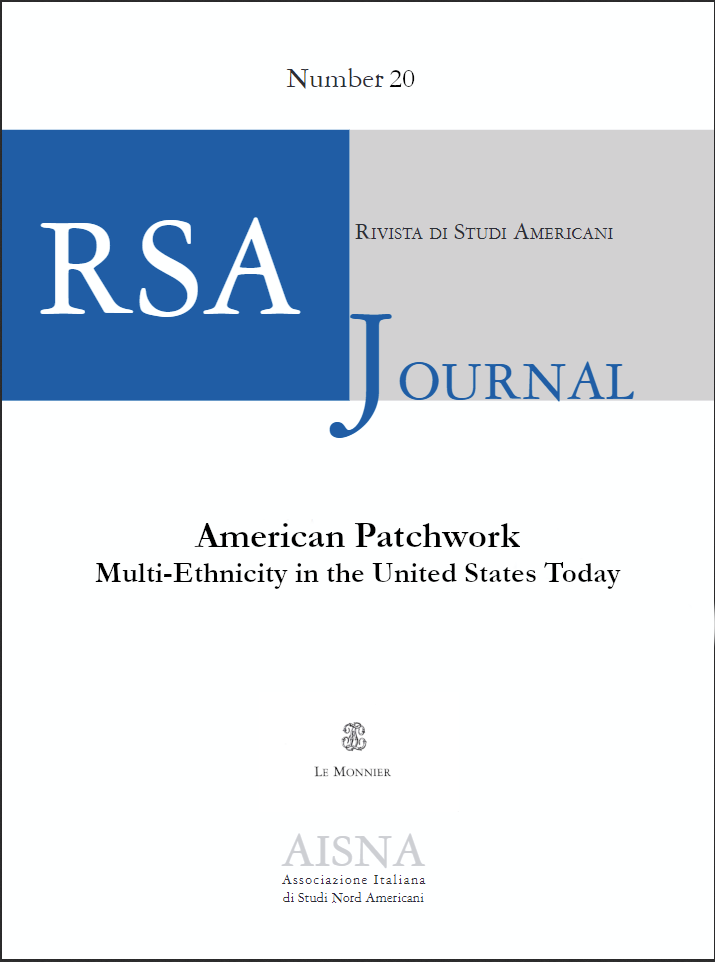Identities in Critical Times
Obama’s “Patchwork” and the “Melting Pot”
DOI:
https://doi.org/10.13135/1592-4467/8658Keywords:
the melting pot, patchwork, the American mythAbstract
This introductory essay explores the potential of the patchwork trope –– and President Barack Obama’s use of it –– to represent U.S. identity and culture at the critical turn of the twenty-first century. It argues that not only does the sense of crisis running through U.S. contemporary society deeply affect the structure of U.S. racial and ethnic relations but also that it can better be understood when considered in relation to an analogous sentiment prevalent in American society at the beginning of the modernist twentieth century, when the ‘melting pot’ metaphor was created. The essay correlates literary and social representations of interracial/interethnic relationships at the turn of the two centuries and the ‘melting pot’ and ‘patchwork’ metaphors. It also highlights how critics, artists, and politicians, while criticizing the ‘American Myth’ of Manifest Destiny, turn once more to imagination to revive the myth of the United States as the land of possibility.
Downloads
Published
Issue
Section
License
RSAJournal will apply a CC BY 4.0 license to all its contributions starting with issue 37 (2026). Previous issues are licensed under a CC BY-NC-ND licence.





